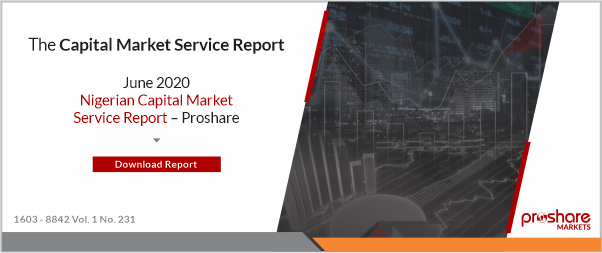Monday, July 13, 2020 / 12:40PM/ AELEX/Header Image Credit: AELEX
Introduction
The Finance Act, 2019 ("the Finance Act")[1]has made significant changes to the tax regime in Nigeria. The Act makes changesto legislation such as the Companies Income Tax Act ("CITA"), Petroleum ProfitTax Act ("PPTA"), Personal Income Tax Act ("PITA"), Value Added Tax Act("VATA") and Capital Gains Tax Act "(CGTA"), amongst others.
We anticipate that some of these reforms would beof interest to private equity ("PE") and venture capital ("VC") investors and fundmanagers interested in Nigeria. This is because the changes will have an impacton matters such as investment strategies, tax planning and revenue forecasts.
We highlight the relevant changes and potentialimplications for the PE industry below.
Taxation of Digitaland Remote Services
A key reform introduced by the Finance Act relatesto the taxation of foreign companies that provide digital content/services (orengage in digital transactions) or technical/management/consultancy/professionalservices to persons in Nigeria.
Before the Finance Act, the physical presence ofthe foreign company or its agents in Nigeria was the primary considerationwhilst determining whether profits of the company were derived from Nigeria. However,pursuant to the CITA (as amended by the Finance Act), a digital or virtualpresence may now suffice.
Thus, the profits of a foreign company shall be alsodeemed to be derived from Nigeria where:
- The companytransmits signals, messages and data of any kind to Nigeria in respect of anyactivity including electronic commerce, online payment platforms and online advertisements,to the extent that the company has a significant economic presence in Nigeriaand profit can be attributable to such activity; and
- The trade orbusiness involves rendering technical, professional, management and consultancyservices outside Nigeria to a person resident in Nigeria, to the extent thatthe company has a significant economic presence in Nigeria.
In exercise of statutory powers, the Minister ofFinance issued the Companies Income Tax (Significant Economic Presence) Order,2020 on 29 May 2020 (the "SEP Order") which became effective on 3 February 2020,stipulating what would constitute a significant economic presence of a foreigncompany.
Thus, where a foreign company that providesdigital content/services is deemed to have a significant economic presence inNigeria, its profits will be subject to companies income tax of 30%. Where theforeign company provides technical, management, professional or consultancy services,it will suffer 10% withholding tax ("WHT")when it receives payment for these services from a person resident in Nigeriaor a fixed base or agent of a foreign company in Nigeria.
Planning points: Nigeria is currently a party to bilateral Double Tax Agreements (the "DTAs") with 14 countries. Nigeria's power to tax the profits of a companyresident in any foreign territory covered by a DTA is only exercisable inrespect of profits attributable to a 'permanent establishment' (in essence, aphysical presence) in Nigeria. As such, there may be an opportunity formultinational enterprises ("MNEs") with access to benefits under Nigeria's DTAsto optimize their group structures with a view to mitigating the impact of theSEP provisions. In exploring that opportunity, it should be noted that the extentto which the DTAs would prevail over the SEP provisions is still uncertain. Also,the OECD's ongoing work on taxation of the digital economy could potentially extendthe definition of a permanent establishment in the DTAs to include provisionssimilar to those of the SEP Order.
Removal of FullWHT exemption for Long-term Foreign Loans
Prior to the enactment of the Finance Act, interest paid from aNigerian company to a foreign lender were fully exempted from WHT if the underlyingloan had a repayment period (inclusive of any moratorium) of more than 7 years.Partial exemptions were available on a graduated basis for shorter tenor loansand any WHT chargeable as a result was (and continues to be) the only tax onsuch interest.
The amendments introduced by the Finance Act have reduced the WHTexemptions on interest on such foreign loans to a maximum of 70%.
Planning points: Given the reduction in the tax exemptions in respect ofinterest on foreign loans, Fund Managers will need to recognise the drop in net interest income fromportfolio companies which have been funded with long-term debt, and its impacton things like PIK notes. They will also need to reevaluate strategies fornegotiating debt instruments, such as convertible loan notes.
ThinCapitalisation Rules
Prior to the introduction of thin capitalisation rules by the FinanceAct, Nigerian companies enjoyed unlimited deductibility of interest expense forincome tax purposes, and interest not deducted could be carried forwardindefinitely. Under the amended CITA, a tax deduction in respect of interestpaid on a loan received from or guaranteed by a 'foreign connected party' mustnot exceed 30% of the taxpayer's EBITDA. However, it also appears that the 30%limit would apply to interest paid in respect of a loan received from anunrelated party but which is guaranteed by an unrelated party. Interest on debtprovided by local lenders is, however, still deductible without limit. Interestnot deducted due to the above restriction can still be carried forward, butonly for a maximum of 5 years.
Planning points: PE Fund Managers should be mindful of the impact of thincapitalisation rules on the after-tax profits (and consequently on thedistributable profits) of their portfolio companies, where such companies arealready funded using debt provided by a foreign related party or guaranteed by eithera foreign related party or by an unrelated party. Consideration should be givento optimizing the debt mix by substituting local debt for foreign debt wherepossible, whilst bearing in mind transfer pricing rules that may adjustinterest rates to reflect arm's length conditions.
Tax Holiday for AgriculturalCompanies
The provisions in the CITA (as amended by the Finance Act) relating totax holidays for companies engaged in agricultural production may make potentialinvestments in Nigerian agribusiness a more attractive proposition for Fund Managers.
Before now, such companies enjoyed income tax exemption under theIndustrial Development (Income Tax Relief) Act for a period of up to 5 years. However,in terms of the amended CITA, companies engaged in agricultural production may nowenjoy income tax exemption for up to 8 years, subject to the satisfactory performanceof agricultural production[2].
Tax-free earningsfor Real Estate Investment Companies
The amendments to the CITA (pursuant to the Finance Act) relating tothe taxation of real estate investment companies ("REIC")[3]is also relevant to investors in the real estate sector.
The amended CITA provides that dividend and rental income received by areal estate investment company will be exempt from tax, provided that 75% ofthe dividend or rental income is distributed within 12 months of the end of thefinancial year in which the dividend or rental income was earned. If thedistribution does not take place within this period, the tax exemption will belost and such earnings will be assessed to tax.
Elimination of PunitiveTaxation of Tax-exempt Income and Retained Earnings
Before the recent amendment of the CITA, where a Nigerian company paiddividends that exceeded its profit, the tax payable by the company would be basedon the dividends and not on the lower profit. This meant that a portfoliocompany would be liable to income tax if it distributed dividends from taxexempt income, or, to a further income tax if it distributed dividends fromretained earnings which had previously suffered tax. It also created adisincentive to use local holding companies, as a distribution of the dividendsreceived by a holding company to its shareholders would invariably trigger afurther tax liability.
CITA has now been amended so that no further companies' income tax willapply to dividends which are:
- paid out ofretained earnings that have suffered tax under the CITA, PPTA, or CGTA;
- paidout of tax-exempt income;
- paidout of franked investment income; or
- paidby a real estate investment company from its rental or dividend incomes.
These amendments effectively eliminate the double taxation that occurswhere such dividends are paid from retained earnings that have been taxed. Theyalso ensure that tax incentives are not eroded when dividends that are paid outof tax-exempt income are distributed.
Planning points: As a result ofthis reform, companies can distribute dividends from tax exempt income withoutpaying income tax, and distribute dividends from retained earnings withoutpaying a further income tax. Conversely,the pressure to distribute all profits in a financial year in order to avoiddouble taxation is removed.
Another keyimplication of the reforms is that where investors determine that it isbeneficial to set up a holding structure in Nigeria, that can now be done on atax neutral basis and without concerns about the possible double taxation ofthe profits of subsidiaries and erosion of tax incentives.
Possible income taxand VAT exposure for foreign entities
Recent decisions of the Nigerian courts and the amendment of the VATAct's definition of 'exported services' may have broader tax implications forFund Managers who would ordinarily be considered not to be tax-resident inNigeria, particularly if they seek to raise funds from Nigerian investors.
Prior to its amendment by the Finance Act, the VAT Act defined anexported service as a "serviceperformed by a Nigerian resident or a Nigerian company to a person outsideNigeria". As exported services were (and still are)exempt from VAT, one view widely held in practice was that aNigerian entity marketing funds to Nigerian residents on behalf of anon-resident fund manager was not required to include VAT in an invoice forthat service or to include such transactions in its VAT returns for therelevant period.
However, in Allan Gray Investment Management Nigeria Limited(Appellant) v Federal Inland Revenue Service (FIRS), the Tax AppealTribunal ("TAT") took the view that a South African investment manager was carryingon business in Nigeria because its Nigerian subsidiary marketed investmentfunds to Nigerian residents on its behalf. That finding was used to support adecision that services rendered by the local subsidiary were in fact renderedto a fixed base of the non-resident company and, therefore, could not beconsidered to be exported services. The decision in Allan Gray nowappears to have been codified by the Finance Act's redefinition of 'exportedservices' as expressly excluding services provided to thefixed base or permanent establishment of a non-resident person.
One implication of these developments is that Nigerian companies orindividuals that are engaged to market foreign funds to local investors onbehalf of non-resident fund managers will now be required to issue VAT invoicesin respect of such services.
There is also a chance that the tax authorities and courts could beginto take the view, following the TAT's reasoning in the Allan Graydecision, that foreign PE funds sourcing investors through local representativeoffices should be deemed to have a permanent establishment or fixed base inNigeria, and therefore be liable to pay income taxes in Nigeria.
Planning points: Itis necessary for Fund Managers resident outside Nigeria to assess theiroperations and existing relationships (with local representatives or agents) todetermine whether the prevailing circumstances are such that their firms may bedeemed to have permanent establishment or fixed base in Nigeria and thereforebecome liable to pay taxes such as VAT and companies income tax.
VAT and CGTExemptions on Business Reorganisation
Prior to the Finance Act, the transfer of assets in the course of a businessreorganisation was construed as a disposal for the purpose of CGT. Suchtransfer of assets was also deemed as a 'supply of goods' to the transferee andwas, therefore, subject to VAT. This was so even if the transferee was a whollyowned subsidiary of the selling entity.
The Finance Act has introduced amendments to the CGT Act and the VATAct. The effect of these amendments is that CGT and VAT will no longer be payableupon the sale or transfer of assets during a business reorganisation if:
- the saleor transfer is to a Nigerian company for the purpose of better organisation ofthat trade, or business or the transfer of its management to Nigeria; and
- theentities are related, i.e. one company has control over the other, orboth companies are controlled by some other person, or both companies are membersof a recognised group of companies[4]for a minimum period of 365 days prior to the date of the reorganisation.
However, if the transferee subsequently disposes of the assets within365 days after the date of the transaction, the tax exemptions will berescinded.
Planning points: Opting for an asset acquisition rather than a shareacquisition would now be tax neutral. It would involve the following 3-step process-(1) the selling entity will incorporate a wholly-owned subsidiary; (2) theselling entity will transfer the assets to the wholly-owned subsidiary after365 days; and (3) the selling entity will then sell the subsidiary to the acquirer. Where a portfolio company of a private equity fund is the seller,this 3-step process will also be available.
Incentives forSmall Businesses
The Finance Act provides that small businesses (i.e. with a turnover ofN25million or less) are exempt fromCIT, whilst medium-sized companies (i.e. with a turnover greater than N25million but less than N100 million) are to be taxed at a reducedrate of 20%.
WHT on Dividendsfrom Petroleum Profits
Before now, dividends paid out of profits that have been subjected topetroleum profits tax did not suffer WHT. This meant that PE entities withinvestment in the petroleum industry could receive dividends thereof free ofWHT. However, such dividends will now suffer WHT of 10%, although, shareholdersthat are resident in a country that has a DTA with Nigeria will enjoy a reducedrate of 7.5%.
Footnotes
[1] The FinanceAct came into force on Monday, 13 January 2020.
2 However, such companies will not be granted similar incentives underany other law, such as pioneer status under the Industrial Development (IncomeTax Relief) Act.
3 The Finance Act defines a REIC as a company duly approved by theSecurities and Exchange Commission ("SEC") to operate as a real estate investmentscheme in Nigeria.
4This is defined in the CGTA as a group ofcompanies as prescribed under the relevant accounting standard.
Related News
1. Helios Agrees TransformationalBusiness Combination With Fairfax Africa Holdings
2. CDC Group Invests $100m in HeliosInvestors IV Fund
3. Experts Review the Impact of COVID-19on Corporate Finance and The Future
4. The Strange Absence of theInstitutional Investor
5. Luke Ofojebe to Speak on DevelopmentsIn Nigerian Equities Market
6. Brickstone Sponsors The ResilientAfrica Week 2020, A Session Organized by The Africa Catalyst
7. Ahead of Tomorrow on WebTV:Discussions on Private Capital In Nigeria
8. Transforming Isolation, Testing andCaring of COVID-19 Patients Through Private Capital
9. Ahead of Tomorrow on WebTV:Discussions on COVID-19; Increasing Private Capital Investment
10. IOSCO Report Provides New Data onGlobal Hedge Fund Industry
11. Lekki Port Receives $221m ChinaHarbour's Equity Infusion
12. COVID-19: Ventures Platform and LagosState Government Partner in Fight Against
The contents of this article are intended to provide a general guide tothe subject matter. Specialist advice should be sought about your specificcircumstances.
If you need additional information, please contact [email protected].
 Lagos, NG • GMT +1
Lagos, NG • GMT +1











 1373 views
1373 views












 Sponsored Ad
Sponsored Ad
 Advertise with Us
Advertise with Us









